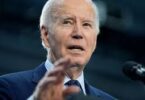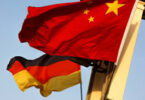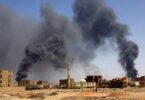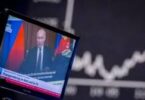David Adesnik
While the United States races to vaccinate its entire adult population against the coronavirus, poor countries struggle to inoculate even their most vulnerable citizens. The director general of the World Health Organization, Tedros Adhanom Ghebreyesus, reports that 1 in 4 residents of wealthier countries has been vaccinated — but only 1 in 500 in low-income nations. “Vaccine equity is the challenge of our time. And we are failing,” Tedros said. “This is not just a moral outrage,” he said, but a prescription for disaster, as the pandemic breeds new variants of the coronavirus with the potential to evade the current vaccines.
Unjust as it may be, the scarcity of vaccines in poor countries was widely anticipated. As early as April 2020, the World Health Organization partnered with three other global health organizations to establish the Covax initiative to promote vaccine equity. President Biden announced a $2 billion U.S. contribution to Covax during his first month in office, and total donations now stand at $6.6 billion.
But the initiative is already falling behind schedule. Covax had planned to deliver 100 million doses by mid-April, but it shipped only 40 million, according to Tedros. The goal of delivering 2 billion doses by the end of the year seems increasingly implausible. The main challenge is that there are just not enough vaccine doses to buy.
An additional problem looms, though: Covax’s single-minded focus on the logistics of making and delivering vaccines has blinded it to how corrupt and authoritarian governments can worsen inequity even after vaccines arrive.
An enduring lesson of foreign medical assistance programs is that scarce, lifesaving resources quickly become focal points of conflict: Unscrupulous leaders may distribute the aid to favored constituencies, while denying it to political, ethnic or religious groups they consider hostile.
During the first year of the war in Syria, the regime of Bashar al-Assad began to withhold polio vaccines from Deir Ezzor, a province increasingly resistant to Damascus’s control. The WHO had certified Syria as polio-free more than a decade earlier, but the disease returned to cripple dozens of children. Rather than sounding the alarm, the top WHO official in Damascus echoed government talking points. Only after humanitarian nongovernmental organizations smuggled laboratory samples across the border to Turkey for independent analysis did the Assad regime and the WHO acknowledge polio’s resurgence.
This sort of deference to authoritarian regimes has been a recurring challenge for the WHO. While former president Donald Trump made wild accusations about Tedros’s subservience to Beijing, the Biden administration also has serious concerns about Chinese influence over the organization. Just five days before announcing its $2 billion donation to Covax, the White House warned that the WHO’s credibility was in danger because its investigation of the pandemic’s origins appeared vulnerable to “intervention or alteration by the Chinese government.”
The challenge for Covax is to build monitoring and verification mechanisms into its distribution process, so recipients cannot weaponize the coronavirus the way Assad did with polio. To incentivize equitable distribution, Covax should accelerate deliveries to recipients that implement thorough safeguards. Conversely, it should work with donor states to pressure governments that resist accountability.
Promoting vaccine equity requires Covax to work with precisely those regimes most likely to abuse or manipulate foreign assistance. The initiative’s initial distribution forecast included 8.9 million doses for Ethiopia, 5.1 million for Egypt, 4.2 million for Iran, 4.2 million for Myanmar, 2 million for North Korea, 1 million for Syria and 860,000 for South Sudan.
In Ethiopia’s northern region of Tigray, massacres and sexual violence have pervaded the conflict that began in November. Secretary of State Antony Blinken said the atrocities in Tigray amounted to ethnic cleansing, while senators condemned the Ethiopian government for preventing aid from reaching those in need.
In early April, Iran received an initial shipment from Covax of 700,000 doses of the AstraZeneca vaccine. The clerical regime in Tehran has a long history of medical corruption. In 2012, Health Minister Marzieh Vahid Dastjerdi — both a gynecologist and the first woman to hold a ministerial post in the Islamic Republic — said on state television, “I have heard that luxury cars have been imported with subsidized dollars, but I don’t know what happened to the dollars that were supposed to be allocated for importing medicine.” She was promptly fired. Iran’s ethnic minorities, such as Arabs and Kurds, have also suffered at the hands of the regime, along with religious minorities such as the Baha’i.
In North Korea, state media have imposed a blackout on any reporting about the existence of vaccines, even as the regime arranges for Covax to deliver millions of doses. The regime’s songbun system of social classification determines an individual’s level of access to food, health care and other essential goods. Those with least hope of access to the vaccine — if they learn of its existence at all — are the 80,000 to 120,000 inmates in the country’s prison camps.
Government officials in South Sudan have found numerous ways to profit from the pandemic. They granted one firm a monopoly on hand sanitizer production, then suspended imports to drive up prices. They sold fraudulent certificates certifying people to be covid-free. A contractor received millions of dollars to renovate an infectious-diseases hospital, but the work was so deficient that the site is now used for storage. A former U.S. diplomat who served in South Sudan, Elizabeth Shackleford, was among the early advocates of incentivizing equitable distribution by accelerating Covax deliveries to governments that accept monitoring. However, she noted, a potential drawback of linking deliveries to a regime’s conduct is that “no one wants to punish a population for the transgressions of its government.”
Eliminating all corruption is an unrealistic goal, yet regimes that deliberately deprive minorities or other vulnerable groups of the vaccine should face consequences. For the worst offenders, it may make sense to provide enough doses of the vaccine to inoculate physicians, nurses and other public health officials but make further aid contingent on independent monitoring.
For the moment and probably for the rest of the year, the demand for vaccines in low-income nations will far outstrip the inventory available to Covax. Triage is unavoidable. One way to help address the problems of unfair distribution within countries would be to change the allocation process so that the readiness of recipient nations to distribute vaccines in a just and equitable manner should influence the allocation process, which currently employs an algorithm that prioritizes equality among countries, not equity within them.
This shift would actually be consistent with the principles Covax has adopted: The initiative commissioned a panel of experts to develop a values framework for allocating vaccines, as well as a road map for equitable delivery of limited supplies. There is also detailed guidance for the development of national vaccination plans. The values framework warns there should be “no tolerance for personal, financial, or political conflicts of interest or corruption.” Yet without independent monitoring, such aspirations are sterile.
The WHO and Covax leadership should broaden their view of vaccine equity to encompass responsibility for what happens after a partner state receives its doses. In all likelihood, this change will require the Biden administration and the other main Covax donors, especially Germany, the European Commission and the Bill and Melinda Gates Foundation, to make clear their support depends on efforts to forestall abuse. It is not just a matter of principle, but one of self-interest. As Tedros observed, one cannot put out only part of a fire.
David Adesnik is director of research at the Foundation for Defense of Democracies. Follow him on Twitter @adesnik. FDD is a Washington, DC-based, nonpartisan research institute focusing on national security and foreign policy.
Courtesy: (FDD)






